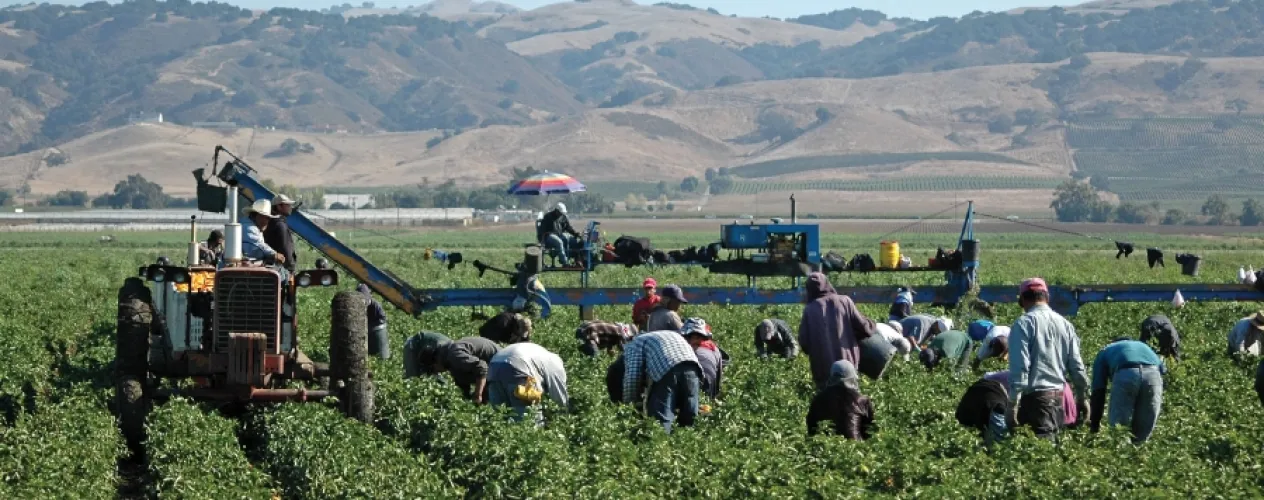Research Impact
UCLA Fielding School of Public Health research has contributed to key advances since the school’s founding.

Because of public health’s focus on prevention, it’s easy to take its impact for granted. But the influence of the field can’t be overstated. Over the last 160 years, public health interventions have doubled life expectancy. Worldwide, diseases that once killed hundreds of thousands of people are now controlled through public health vaccination programs. Infections once commonly transmitted by contaminated water, such as typhoid and cholera, are now rare. Public health has led the way toward policies that have produced cleaner air and more drinkable water, raised food sanitation standards, ensured safer workplaces, reduced consumption of carcinogens such as tobacco, and promoted more walkable and bikeable cities.

Amid substantial gaps in who has access to healthy, affordable meals, UCLA Fielding faculty, students, and graduates pursue policies and community partnerships that promote change.
UCLA Fielding School of Public Health research has contributed to many of the field’s key advances since the school’s founding in 1961. As hard as it is to believe today, experts once scoffed at the idea that nutrition, exercise, and whether or not one smoked were linked to longevity. FSPH research changed that mindset with seminal studies that ushered in a new era of health promotion. In the early 1980s, even before HIV had been identified as the cause of AIDS, a UCLA Fielding School epidemiologist initiated a cohort study that continues to this day, having prevented millions of new infections through its landmark findings. The discovery by FSPH researchers that tens of millions of people lacked health insurance, imperiling their health, accelerated efforts to reform the national healthcare system, ultimately paving the way for the Affordable Care Act. Research by UCLA Fielding faculty, students, and alums proved pivotal in policy changes that have led to dramatic improvements in the air quality of the Los Angeles basin over the last several decades.
Improvements to health and wellness resulting from FSPH research is considerable.
-
Examples of Impact
- After UCLA Fielding faculty showed the benefits of helmets for motorcycle riders, California enacted a helmet-use law, and motorcycle fatalities plummeted.
- A pesticide approved for use on strawberries in 2010 was found by a UCLA Fielding professor to be unsafe at any level; it was banned in California as a result.
- An FSPH study found that higher exposure among children to junk-food commercials on TV was associated with higher rates of childhood obesity, leading Disney to restrict the types of ads it allows on its channels.
- After FSPH research underscored the value of distributing vouchers for fruits and vegetables to participants of the Women, Infants, and Children (WIC) program, the U.S. Department of Agriculture instituted the first major revisions to the WIC food packages.
- UCLA Fielding studies have fueled life-saving cancer screening initiatives in underserved communities.
- The UCLA Fielding-based California Health Interview Survey, the nation’s largest state health survey, continues to serve as an essential tool and a model for other states in defining the health and healthcare needs of California’s diverse communities.
- A UCLA Fielding School-led group found that the Ebola vaccine known as rVSVΔG-ZEBOV-GP resulted in a robust and enduring antibody response among individuals in areas of the Democratic Republic of Congo experiencing outbreaks of the disease.
Public health research aims to effect positive, lasting change on the health of communities and populations. For UCLA Fielding faculty and staff, that means going beyond publishing in peer-reviewed journals to ensure that their findings are translated into action. It means engaging with policymakers, public health departments, community-based organizations, and experts in other sectors to design and implement sustainable changes that prevent disease, promote health, and upend the root causes of health inequities.

A UCLA Fielding School-led group found that the Ebola vaccine known as rVSVΔG-ZEBOV-GP resulted in a robust and enduring antibody response among individuals in areas of the Democratic Republic of Congo experiencing outbreaks of the disease.